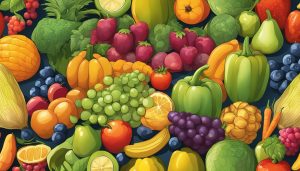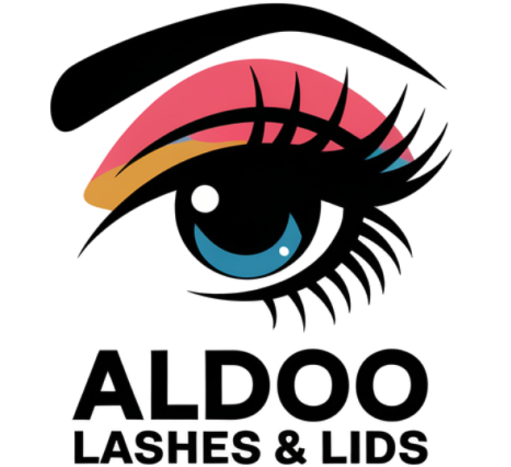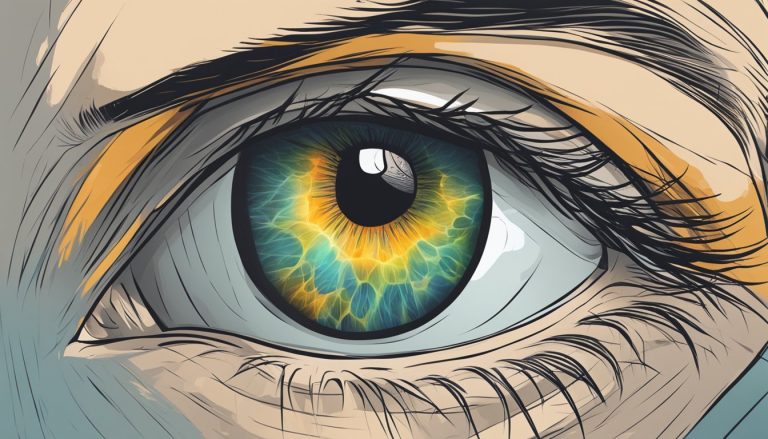Diet and the Eyes: The Surprising Impact Food Has on Protecting Vision
Diet and Nutrition for the Eyes: The Surprising Impact Food Has on Protecting Vision

Most likely, you’re worried about your eye health since you’re reading this. Good news: there are many things you can do to keep and protect your eyesight. One of the most important is to eat right. Eating foods that are high in certain nutrients can help keep your eyes healthy and stop problems before they happen.
Several vital nutrients are very important for eye health. These include zinc, omega-3 fatty acids, vitamin A, vitamin C, and vitamin E. These nutrients keep the eyes safe from free radical damage, lower swelling, and help the blood vessels in the eyes stay healthy. You can help keep your eyes healthy and stop losing your sight by making sure you eat enough of these nutrients.
So, what are the best foods to eat to get these nutrients that protect the eyes? Sweet potatoes, carrots, and spinach and kale are good foods to eat to get vitamin A. Citrus fruits, berries, and peppers are excellent ways to get vitamin C. Nuts and seeds are excellent sources of vitamin E. fatty fish like salmon and tuna are good choices for omega-3 fatty acids. Zinc is found in meat, seafood, and beans. You can offer your eyes the nutrients they require to stay healthy and strong by eating these foods.
Main Points
- Proper nutrition is essential for maintaining healthy eyes.
- Certain nutrients, including vitamin A, vitamin C, vitamin E, zinc, and omega-3 fatty acids, are particularly important for eye health.
- Foods like sweet potatoes, leafy green vegetables, nuts, seeds, and fatty fish are some of the best dietary sources of these eye-protective nutrients.
Important Nutrients for Eye Health
To keep your eyes healthy and your vision clear, you need to take good care of them. Eating a lot of foods that are high in nutrients that are good for your eyes is one way to keep them healthy. In this part, we’ll talk about some of the most important foods for keeping your eyes healthy.
Good Eye Health and Antioxidants
Free radicals can damage cells, but antioxidants keep your cells from getting hurt. Free radicals are molecules that can hurt your cells and make chronic diseases like age-related macular degeneration (AMD) and cataracts more likely to happen. Vitamins C, E, lutein, and zeaxanthin are some of the most important antioxidants that help keep your eyes healthy.
Leafy greens, citrus fruits, berries, nuts, and seeds are all foods that are high in antioxidants. These foods are good for you and might protect your eyes from eye damage free radicals cause.
Omega-3 fatty acids and better eyesight
Omega-3 fatty acids are a type of polyunsaturated fat that your body needs to stay healthy. These fats are very important for keeping your brain and heart healthy and for keeping your eyes healthy. EPA and DHA are Omega-3 fatty acides that good for eye health.
Omega-3 fatty acids are known to help lessen the chance of getting AMD and other eye diseases. Foods like flaxseed, chia seeds, and peanuts, and salmon and tuna, are high in omega-3 fatty acids.
Vitamin A and the Health of Your Eyes
Vitamin A is an important vitamin for staying healthy because it dissolves in fat. This nutrient is very important for preserving eyesight because it helps make rhodopsin, a pigment that is needed for seeing in dim light.
Liver, sweet potatoes, carrots, spinach, and kale are all foods that are high in vitamin A. Most foods that are high in vitamin A can help keep your eyes healthy and your retinas healthy.
Carotenoids and zinc are two other important nutrients for eye health that go along with these key nutrients. It is possible to make sure you get all the nutrients you need to keep your eyes healthy by eating a lot of different fruits, veggies, and whole grains.
Foods that contain nutrients that protect the eyes
To keep your eyes healthy, you need to eat a varied diet full of nutrients. Many foods are full of minerals, antioxiants and vitamins that can help keep your eyes healthy and free of damage that comes with getting older. Here are some food sources of nutrients that are good for your eyes:
Fruits and vegetables that are high in vitamins
Fruits and vegetables are great ways to get vitamins that are good for your eyes. There are a lot of lutein and zeaxanthin in leafy greens like spinach and kale. These chemicals can help protect your eyes from blue light and lower your risk of age-related macular degeneration. Vitamin A is important for good eyesight and can be found in large amounts in carrots, sweet potatoes, bell peppers, and tomatoes. Vitamin C-rich fruits such as citrus oranges and grapefruit can help keep your eyes healthy and slow down the growth of age-related macular degeneration.
Fish and seeds are good sources of healthy fats.
Omega-3 fatty acids and other healthy fats are very important for eye health. Omega-3 fatty acids in fish like trout, sardines, and salmon are also found. These acids can help keep your eyes from drying out and lower your risk of age-related macular degeneration. Flaxseed, chia, and sunflower seeds contain omega-3 , which are all easy to add to your diet.
Whole Grains, Nuts, and Beans
Zinc is very important for eye health and can be found in large amounts in legumes, nuts, and whole grains. Zinc can lower your chance of age-related macular degeneration and protect your eyes from blue light that is bad for them. Zinc is found in in whole wheat bread and brown rice brown rice , nuts like peanuts and almonds, and legumes like beans and lentils.
Adding these foods to your diet is known to keep your eyes healthy and lower your risk of getting diseases that come with getting older. Additionally, eating dairy products like yogurt and eggs, cooking with olive oil, and drinking green tea can all provide important nutrients for good eye health.
How to Avoid and Treat Eye Conditions
Taking care of your eyes is important to keep your vision and keep eye diseases at bay. Getting enough nutrients can help keep your eyes healthy. To begin, let’s talk about how eating can affect three common eye conditions: age-related macular degeneration (AMD), cataracts, and dry eye syndrome.
Macular Degeneration Caused by Old Age
The macula is the part of the retina that controls center vision. AMD affects this part of the retina. It is the main reason why older people lose their sight. The problem is that the macula is breaking down, which makes vision blurry or skewed. There is no fix for AMD, but some nutrients can help stop it or slow it down.
Some nutrients, like zinc, vitamins C and E, lutein, zeaxanthin, and omega-3 fatty acids, may help lower the chance of AMD. Leafy greens, fish, nuts, and citrus foods are all good sources of these nutrients. Free radicals are known to cause damage that can lead to AMD. Eating a lot of antioxidant-rich foods can also help stop this.
Cataracts and the Effects of Food
Cataracts happen when the lens in the eye gets cloudy. This can make it hard to see clearly. They are often found in older people and affect a lot of them. Cataracts can be surgically removed, but good nutrition can help stop or slow their growth.
Some nutrients, like vitamins C and E, lutein, zeaxanthin, and omega-3 fatty acids, may help keep you from getting cataracts. Leafy veggies, citrus fruits, nuts, and fish are all good sources of these nutrients. Free radicals can also do damage, which can lead to cataracts. Antioxidants can help stop this damage.
Dry Eye Syndrome and What You Eat
People with dry eye disease either don’t make enough tears or make tears that aren’t very good. This could make you feel bad, irritate your skin, or even make it hard to see. No one knows for sure what causes dry eye syndrome, but some nutrients can help stop it or make it easier to deal with.
Omega-3 fatty acids may help people with dry eye syndrome feel better, according to research. Fatty fish, flaxseed, and chia seeds are all foods that are high in omega-3 fatty acids. Staying refreshed and drinking a lot of water can also help stop dry eye syndrome.
Finally, good diet can help keep eye diseases like AMD, cataracts, and dry eye syndrome from happening or getting worse. Eating a lot of vitamins C and E, lutein, zeaxanthin, and omega-3 fatty acids can help your eyes stay healthy and keep you from losing your sight.
Questions People Ask
What foods are good for your eyes because they are high in vitamin A?
Getting enough vitamin A is important for keeping your eyes healthy. Carrots, sweet potatoes, spinach, kale, and liver are some foods that are high in vitamin A. Beta-carotene, which is found in these foods, is turned into vitamin A by the body.
How can what you eat affect how fast blindness gets worse?
One way to help slow down the development of myopia is to eat a lot of foods that are high in vitamin D, vitamin E, and omega-3 fatty acids. These nutrients can be found in large amounts in fatty fish, nuts, seeds, and leafy green veggies.
What foods are important for getting better eyesight without glasses?
Other nutrients besides Vitamin A that are important for improving eyesight without glasses are omega-3 fatty acids, Vitamin C, and Vitamin E. Leafy greens, nuts, seeds, and fatty fish are all foods that are high in these nutrients.
Where can I get the most vitamins to keep my eyes healthy?
This is because antioxidants help keep the eyes safe from harm caused by free radicals. Blueberries, strawberries, dark chocolate, and green tea are all foods that are high in antioxidants.
Could you name some veggie foods that are especially good for your eyes?
Leafy green veggies, carrots, sweet potatoes, and nuts are all vegetarian foods that are great for your eyes. A, C, and E, as well as vitamins and other nutrients that are good for your eyes, are found in large amounts in these foods.






